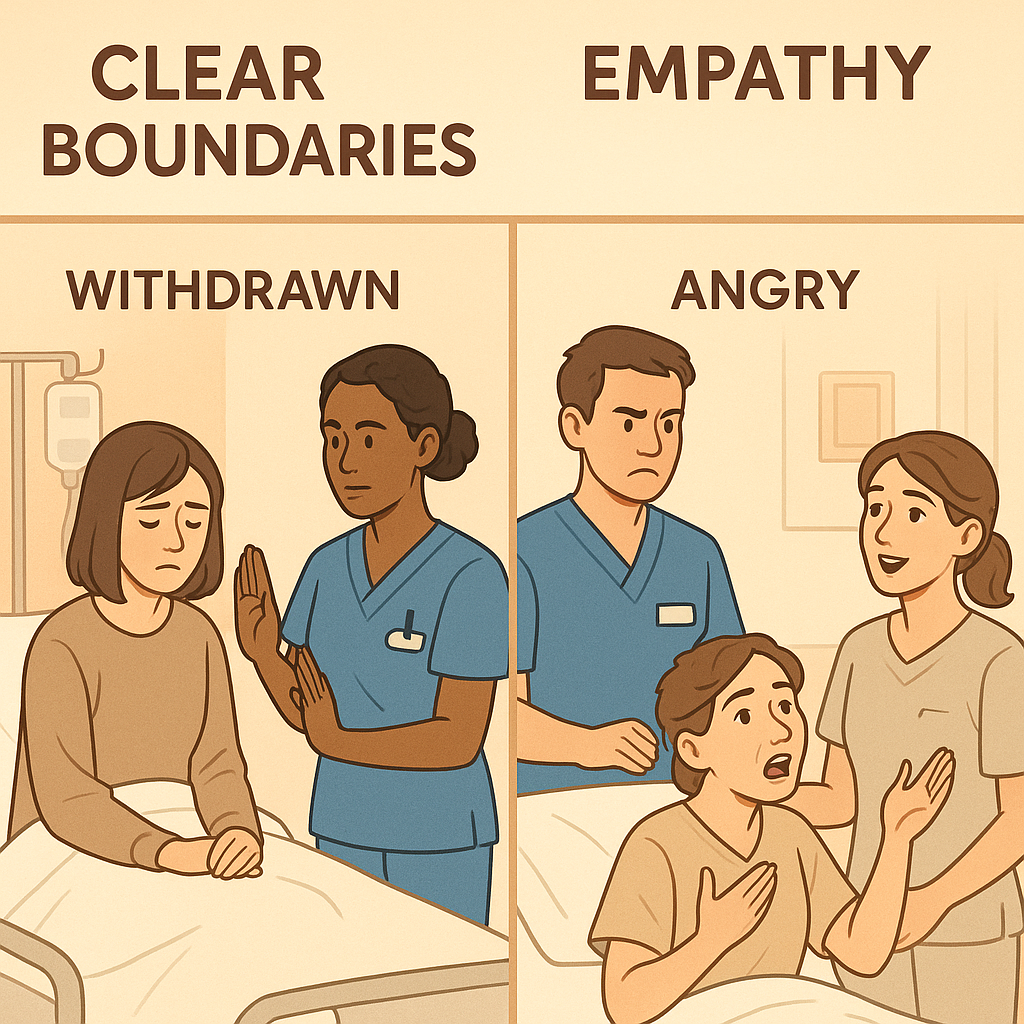Understanding personality disorders is essential for every nurse, especially those preparing for the NCLEX or building a solid nursing bundle of mental health knowledge. Patients with personality disorders often have long-standing patterns of thinking, feeling, and behaving that make daily functioning — and caregiving — more challenging.
As a registered nurse (RN nurse), you may care for these patients in a wide variety of settings, including psychiatric units, med-surg floors, and community care. This guide breaks down the most common types, their traits, and practical care tips.
🧠 What Are Personality Disorders?
Personality disorders are mental health conditions where a person’s thoughts and behaviors differ significantly from social expectations. These patterns are:
- Inflexible
- Long-lasting
- Cause distress or difficulty in relationships
They are grouped into three clusters: A, B, and C. Understanding the clusters will help you on the NCLEX, especially when choosing interventions in clinical scenarios.
🧩 Cluster A (Odd or Eccentric Behavior)
1. Paranoid Personality Disorder
- Distrusts others without real evidence
- Suspicious and hypersensitive
- May interpret friendly gestures as threats
Nursing care tip: Be direct and honest. Avoid jokes or sarcasm.
2. Schizoid Personality Disorder
- Emotionally detached
- Prefers being alone
- Limited interest in relationships
Nursing care tip: Respect their need for space. Don’t force social interaction.
3. Schizotypal Personality Disorder
- Odd beliefs or magical thinking
- Eccentric appearance or speech
- Socially anxious
Nursing care tip: Use clear communication. Avoid challenging their beliefs.
🔥 Cluster B (Dramatic, Emotional, or Erratic)
4. Antisocial Personality Disorder
- Ignores rights of others
- May lie, manipulate, or violate rules
- Often has legal problems
Nursing care tip: Set firm boundaries. Stay professional and avoid arguments.
5. Borderline Personality Disorder
- Intense fear of abandonment
- Rapid mood swings
- Impulsive behaviors (e.g., self-harm, binge eating)
Nursing care tip: Stay consistent, avoid overinvolvement, and provide emotional validation with limits.
🔎 NCLEX tip: Expect questions about safety, especially with RN nurses caring for self-harming patients.
6. Histrionic Personality Disorder
- Seeks attention constantly
- Dramatic, emotional, and easily influenced
- May dress provocatively
Nursing care tip: Stay calm and neutral. Reinforce appropriate behavior gently.
7. Narcissistic Personality Disorder
- Inflated sense of self-importance
- Needs constant praise
- Lacks empathy
Nursing care tip: Don’t take things personally. Set limits respectfully.
💡 Cluster C (Anxious or Fearful Behavior)
8. Avoidant Personality Disorder
- Fear of criticism or rejection
- Avoids social situations
- Low self-esteem
Nursing care tip: Be encouraging but don’t push. Offer positive feedback.
9. Dependent Personality Disorder
- Needs others to make decisions
- Clings to others for support
- Fears being alone
Nursing care tip: Support decision-making gradually. Encourage independence.
10. Obsessive-Compulsive Personality Disorder (OCPD)
- Perfectionism
- Rigid routines and rules
- Difficulty delegating
❗ Note: This is different from OCD, which involves intrusive thoughts and compulsions.
Nursing care tip: Be flexible and patient. Avoid arguing over details.
🩺 Nursing Care for Personality Disorders
Regardless of type, patients with personality disorders need consistent, compassionate care. As an RN nurse, here are general principles to follow:
✅ What to Do
- Set boundaries early and consistently
- Use therapeutic communication techniques
- Avoid emotional reactions or judgment
- Document behaviors clearly and objectively
- Work as a team to provide consistent messages
❌ What to Avoid
- Don’t make promises you can’t keep
- Avoid being overly involved emotionally
- Don’t argue or challenge the patient’s reality
These tips often appear on the NCLEX, especially in mental health or psychiatric scenarios.
📝 Quick NCLEX Review Questions You Might See
Q1: A patient with borderline personality disorder says, “You’re the only nurse who cares. Everyone else is mean.” What’s the best response?
A: “I’m sorry you feel that way. All your nurses want to help you.”
🔑 This maintains boundaries and supports therapeutic communication — a must-know skill for every nurse.
🧰 Why This Belongs in Your Nursing Bundle
Mental health nursing is a growing part of all care settings. Whether you’re reviewing for the NCLEX, working as a registered nurse, or building a resource kit, understanding how to recognize and care for personality disorders is essential.
Adding this guide to your nursing bundle ensures you’re equipped with:
- Real-world interventions
- Test-friendly strategies
- Compassionate communication tips
🧠 Key Takeaway
Personality disorders are complex but manageable. With patience, empathy, and clear boundaries, RN nurses can provide safe and respectful care. Whether you’re working in the psych unit, emergency room, or community care, this knowledge helps you respond effectively — and pass the NCLEX confidently.

